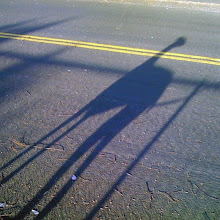Nun of the Above
There’s a symptom apparent in America right now. It’s evident in political talk shows, in entertainment coverage, in artistic criticism of every kind, in religious discussion. We are living in a courtroom culture. We were living in a celebrity culture, but that’s dead. Now we’re only interested in celebrities if they’re in court. We are living in a culture of extreme advocacy, of confrontation, of judgment, and of verdict. Discussion has given way to debate. Communication has become a contest of wills. Public talking has become obnoxious and insincere. Why? Maybe it’s because deep down under the chatter we have come to a place where we know that we don’t know…anything. But nobody’s willing to say that.
Let me ask you. Have you ever held a position in an argument past the point of comfort? Have you ever defended a way of life you were on the verge of exhausting? Have you ever given service to a creed you no longer utterly believed? Have you ever told a girl you loved her and felt the faint nausea of eroding conviction? I have. That’s an interesting moment. For a playwright, it’s the beginning of an idea. I saw a piece of real estate on which I might build a play, a play that sat on something silent in my life and in my time. I started with a title: Doubt.
Shanley ends with a play set in 1964 that's pretty brilliant if you can admire the sheen of ambivalence. Did the priest molest the young boy? Is the nun's conviction of the priest's guilt merely her way to keep order against the encroaching secularization of the holy orders? Why does she want to sustain a system that makes her mightily powerful over children but relatively powerless otherwise?
The play is yet more wonderful because Cherry Jones enhabits (pun intended) the role of Sister Aloysius so fully. She's so formidable she's practically S.S. Nun, so any crack in her armor is even more devastating, more a chance for all of us to wonder what it means to know, to doubt. How much of faith is the desire for faith? And what does it mean if we've wandered into desire as our verb of choice, as we stare into the religious?
Perhaps one of Shanley's best touches is we never see a single child at the St Nicholas Church School in the Bronx. Sure, that just make the play easier to stage, but I sort of mean that in more than one way. If we saw the child who was supposed to be molested, even if we have doubt about Father Flynn's guilt, it would be tougher to sustain, if doubt is sustained (is doubt a wallow? a fog? a grace we want no part of, just as we don't want part of the cross--and I don't even mean that religiously). It's a play about protecting the children yet we never see them. They are part of faith, then, too, prayers we offer, hopes we hold to our hearts and assume there's a bigger picture who cares for their innocence. Of course, it's Sister Aloysius who says, "Innocence can only be wisdom in a world without evil." When the nuns--even the most ramrod straight of them--call experience wisdom, you know the fall is just around the corner. Nuns fall, you know.


1 Comments:
You're welcome--thanks for the kind words and stopping by.
Post a Comment
<< Home